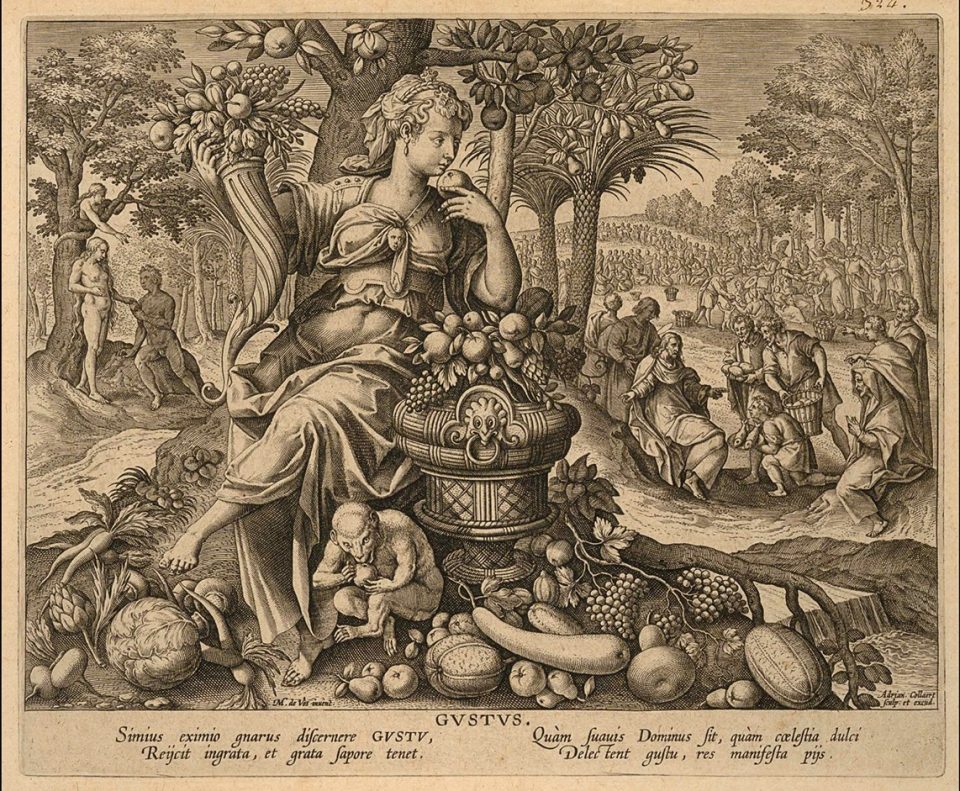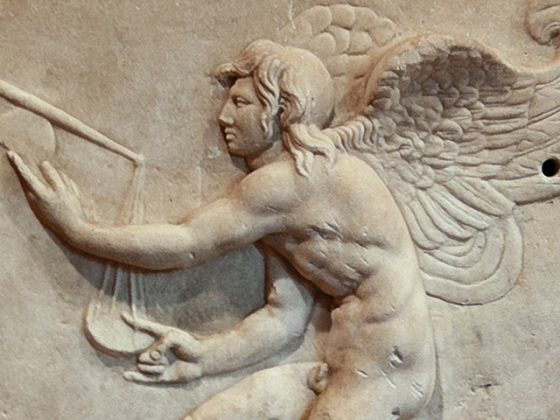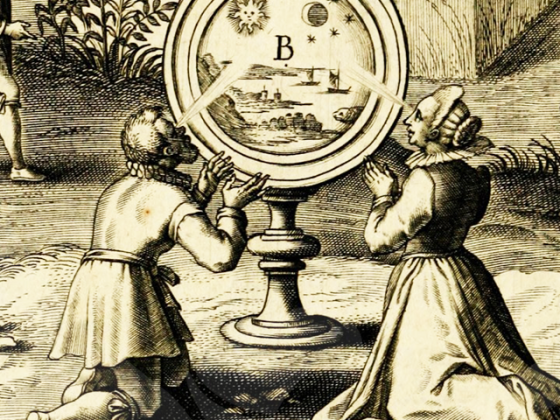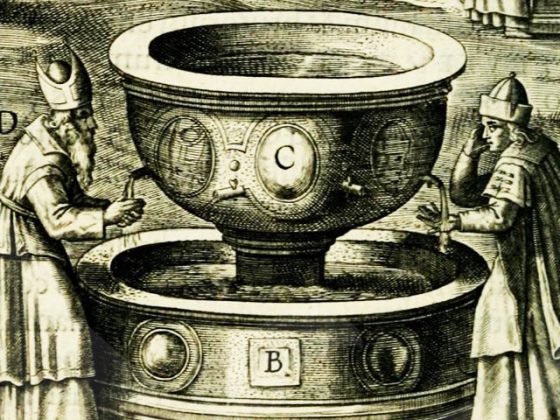Dearest friends:
I am pleased, on this occasion, to send you a few words about this beautiful engraving entitled…
…THE SENSE OF TASTE

First of all, let us say that this canvas, like the previous ones dedicated to the senses, was the work of two Flemish artists: Maerten de Vos ─1532-1603─ and Adriaen Collaert, a Flemish designer who lived between the years 1560-1618.
The present artistic work is in direct relation to one of the five senses of our organic machine. First we see in it a beautiful lady who carries in her right hand the horn of the goddess Amalthea, which means material or spiritual abundance.
The five senses of our organism can be focused either to feed our egoic Beast or to exalt our Soul and our Spirit.
It is curious to see the lady in our engraving about to eat an apple. This fruit has hermetically symbolized sexuality. We all know, through Gnosis, that with the sexual force we ascend to the heavens of Consciousness or descend to our atomic hells. Sex is the ladder to go up or the ladder to go down, everything will depend on how we polarize with this power. If we use it to fornicate we will become more and more unconscious and degenerate, but if we use this power to transmute the sexual libido then we will activate the psychic and animic faculties of each one of us.
That is why right behind the horn that this maiden has in her left hand, in the background, we can see the scene in which the mythological Eve, driven by the luciferic desire ─which is coiled like a serpent with a female body in the tree of the knowledge of good and evil─, is precisely tempting the original Adam, inciting him to fall, that is, to lose his innocence and his spiritual balance. That event caused, biblically speaking, the expulsion of the couple from what religions call the earthly paradise, or paradise of Consciousness.
On the left side of the lady, in the background, we are shown the Great Kabir of Galilee speaking to his disciples while these, astonished, show him the fruit of his portents, that is: the multiplication of the loaves, the abundant catch that he provoked in another of his miracles, etc., etc., etc. Right there we see the crowds queuing up to receive the gifts that the V.M. Aberamentho was offering them.
It is obvious, esteemed reader, that only when we recover THE SOUL-SPIRIT can we then again be the image and likeness of our Creator and become kings of Nature and not slaves to it.
Below the lady a creature stands out, which has ape-like characters. This is the symbol of the involution of the human being, and that is why it is devouring apples in a wild way next to a hermetic vessel ─alchemical symbol of transmutations─.
Gnostic esotericism tells us that we can inhale the aroma of the forbidden fruit, but not swallow it….. He who has understanding may he understand….. To breathe in the aroma of symbolic fruit means to transmute our creative energy; to swallow the allegorical fruit means to lose our mercurial waters. To reconquer the heavens of Consciousness it is necessary to acquire sexual refinement, or, as the Venerable Saint Augustine said, to turn the coitus into a prayer……
There are at the bottom of our engraving some Latin sentences that tell us:
"Simius eximio gnarus discern Gvstv. Reijcit ingrata, et grata sapore tenet. Quam suavis Dominus sit, quam coelestia dulci delectent gustu, res manifesta pijs'.
Translation: ‘The monkey skilled in discerning with excellent taste, rejects unpleasant things and keeps pleasant things through the taste. How gentle be the Lord, how much heavenly things delight with sweet taste, which is evident to the pious.'
I finally add for you the following sentences for reflection:
“Perfection is a wonderful virtue that weighs so much that man cannot cope with it.”
Ortega Munilla
“He who with insight recognizes the limitation of his faculties, is very close to reaching perfection.”
Goethe
“Perfection taken to excess dies of plethora.”
Shakespeare
“If we were to examine ourselves from time to time, the natural result of that examination would be our greater perfection.”
Montaigne
SOL LUCET OMNIBUS.
─'The Sun shines for all'─.
KWEN KHAN KHU




